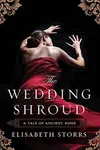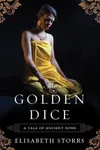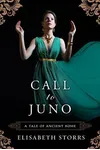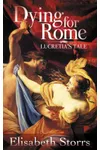Picture an Australian storyteller who breathes life into the forgotten world of ancient Etruria—meet Elisabeth Storrs! With a legal mind and a heart for history, Storrs crafts historical fiction that transports readers to the clash of Rome and the Etruscans. Her acclaimed A Tale of Ancient Rome series has captivated readers worldwide, blending meticulous research with vivid storytelling.
Storrs’s journey from lawyer to literary star is as fascinating as her novels. Her passion for ancient myths and her ‘hybrid author’ approach—mixing traditional and self-publishing—have made her a standout in historical fiction. Let’s dive into the life and legacy of this Sydney-based author who’s rewriting the past!
The Making of Elisabeth Storrs
Born in Sydney, Australia, Elisabeth Storrs grew up with a love for the classics, nurtured by her father’s encouragement to think creatively. She graduated from the University of Sydney with a degree in Arts Law, majoring in Classics, which fueled her fascination with ancient history. Before becoming a full-time writer, Storrs built a diverse career as a solicitor, corporate lawyer, and governance consultant, balancing analytical precision with her creative spark.
Her writing journey began when she stumbled upon a photograph of a 6th-century BCE Etruscan sarcophagus depicting a couple in a tender embrace. This image, rare for its time, sparked her curiosity about a civilization that revered women as equals. Over fifteen years, Storrs meticulously researched the Etruscans, laying the foundation for her literary career.
Elisabeth Storrs’s Unforgettable Stories
Storrs’s A Tale of Ancient Rome series is her crowning achievement, a trilogy that vividly recreates the war between Etruscan Veii and Republican Rome. The first novel, The Wedding Shroud (2010), introduces Caecilia, a Roman girl married to an Etruscan nobleman to seal a truce. Readers are immersed in Veii’s vibrant, sensual culture, contrasting with Rome’s austerity. Endorsed by Ursula Le Guin, it was a runner-up in the 2012 Sharp Writ Book Awards.
The saga continues with The Golden Dice (2013), a tale of war, betrayal, and resilience, praised by Ben Kane for its rich historical detail. The trilogy concludes with Call to Juno (2016), an Editor’s Choice in the Historical Novels Review, where Caecilia faces her ultimate test of loyalty. Storrs also penned Dying for Rome: Lucretia’s Tale, a short story reimagining a legendary Roman woman’s rebellion. Her upcoming novel, Treasured, leaps to WWII Germany, exploring looted art and Nazi archaeology.
Storrs’s style is a blend of lush prose and historical rigor, bringing the Etruscans’ sophistication and spirituality to life. Her female protagonists—Caecilia, Pinna, Semni—navigate love, duty, and societal prejudice, offering a fresh perspective on ancient gender roles. Her ability to weave fact with fiction makes her work both educational and enthralling.
Why Elisabeth Storrs Matters
Elisabeth Storrs has carved a niche in historical fiction by spotlighting the under-explored Etruscan civilization, a culture often overshadowed by Rome. Her work resonates with readers who crave stories of strong women and lesser-known histories. As a founder and chair of the Historical Novel Society Australasia, Storrs has championed the genre, launching the prestigious ARA Historical Novel Prize to elevate new voices.
Her ‘hybrid author’ journey—transitioning from traditional publishing in Australia to international acclaim through self-publishing—has inspired aspiring writers. Storrs’s dedication to historical accuracy and her ability to craft compelling narratives have earned her a devoted global readership and praise from peers like Kate Quinn.
About Elisabeth Storrs
- Born: Sydney, Australia
- Key Works: The Wedding Shroud, The Golden Dice, Call to Juno, Dying for Rome: Lucretia’s Tale
- Awards: Runner-up, 2012 Sharp Writ Book Awards; Editor’s Choice, Historical Novels Review
- Notable Role: Founder, Historical Novel Society Australasia
Ready to time-travel to ancient Etruria? Snag The Wedding Shroud and dive into Elisabeth Storrs’s spellbinding historical fiction!



